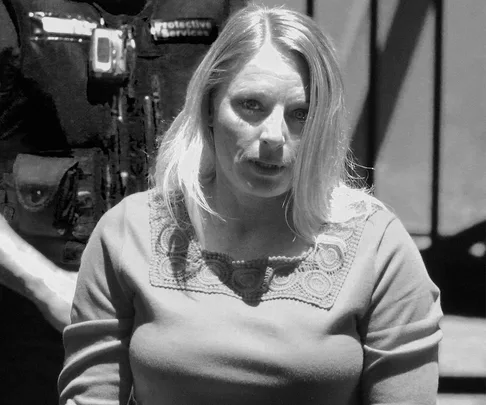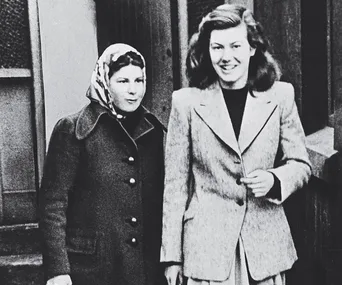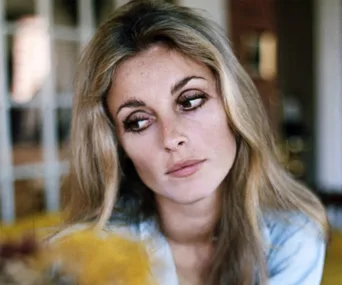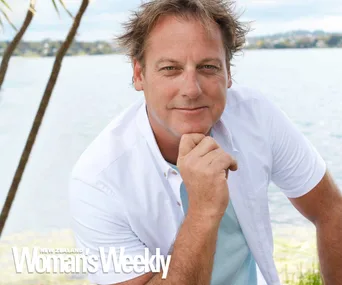The Supreme Court of Victoria, in Melbourne, is not a place for romance, but as she sat in handcuffs before a judge, Robyn Lindholm sent meaningful looks towards her lover.
Hunched and rough-faced, Torsten Trabert, also in chains, sat just a few feet away, on the other side of an armed guard. The love-struck brute flirted back, seemingly oblivious to the sombre proceedings going on around him.
It was the closest the couple had been since they were arrested two years earlier, after homicide police chased them through one of Melbourne’s inner suburbs.
The dog squad finally tracked them to a drain where they were hiding in water up to their necks.
Lindholm, a blonde former stripper, eventually admitted to ordering the murder of her ex, and Trabert, a truck driver, was found guilty of inflicting the fatal blow.
As they awaited their jail sentences, they knew it was the last time they would see each other for years, possibly forever.
Trabert, or “Toots” as he called himself in the soppy letters he wrote from jail, seemed happy just to be near Lindholm. Given what we now know about Lindholm’s record of slaying her lovers, he was perhaps safer locked away.
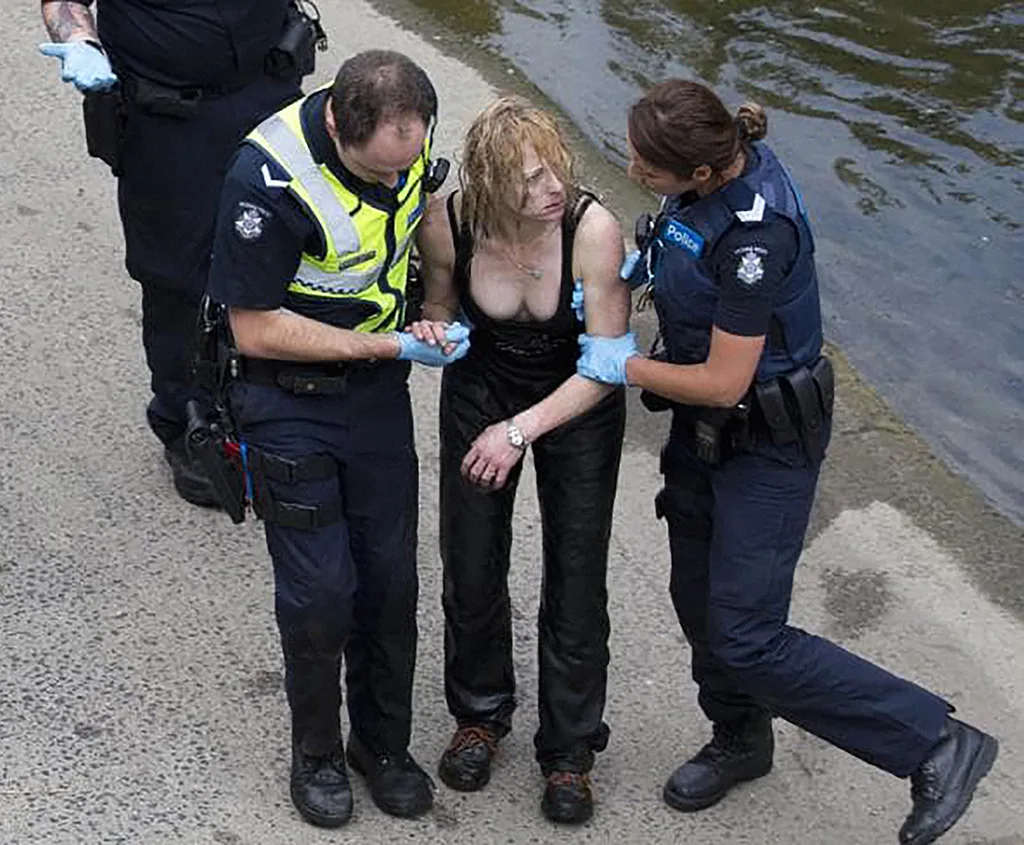
Robyn Lindholm was arrested after being found hiding in a drain.
The trial heard how Lindholm had asked a succession of boyfriends to kill her ex, Wayne Amey.
She made the request of Kyle Elliot, then Aaron Ardley and finally Trabert. Aaron had agreed to do it, telling the trial that Lindholm had him under a “spell”. But he was injured and it was Trabert who finally carried out the deed in December 2013.
Lindholm’s lawyer, John Kelly, asked for leniency because she was remorseful. But Justice Lex Lasry didn’t buy it.
“I am sure that you are ashamed and embarrassed,” the judge said.
“But the real question is whether you genuinely regret what you have done. I frankly do not see any sign of that.”
Lindholm was “angry and vengeful”, Justice Lasry said. Killing Wayne was futile and unnecessary, and dumping his body on a lonely mountain top was “callous”, he said.
He jailed Lindholm for 25 years and Trabert for 28.
A third accomplice, John Anthony Ryan, was sentenced to 31 years. Lindholm got a discount for pleading guilty. Trabert did too because he led police to the body, wedged between boulders at Victoria’s Mt Korong.
The trial heard the trio went out drinking after hiding the corpse.
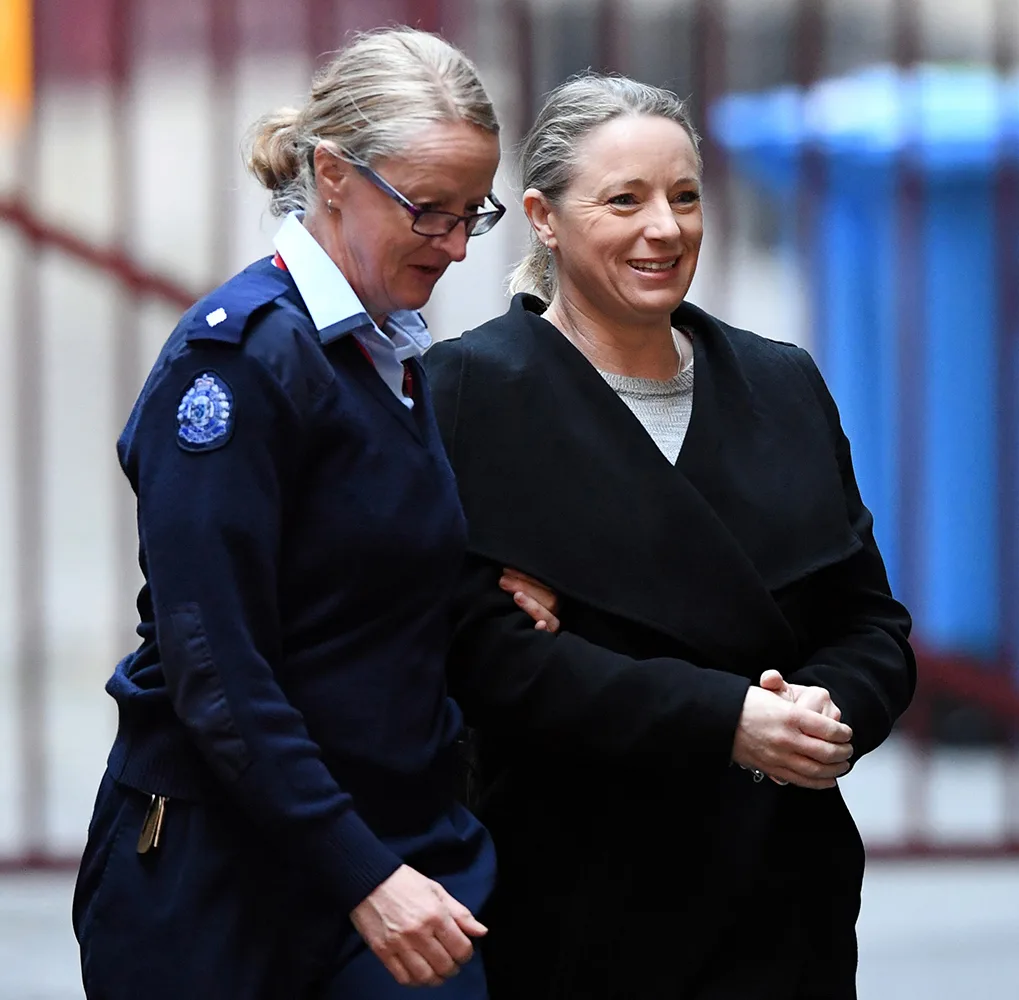
The earliest Robyn is due for release from prison is 2049.
After the sentences were handed down the lovers were parted, Lindholm to her cell, Trabert to his.
But nearly six months later, on May 31, 2016, detectives visited Lindholm in prison. She was charged with murder, again the victim was a man she’d once loved.
Police believed they had cracked the mystery of her missing former fiancé, George Teazis, who vanished in 2005.
When he sentenced her for George’s murder, Justice Christopher Beale noted Lindholm had had an idyllic upbringing.
She had been close to her father, and her mother visited her twice a week in jail. In fact, her mother moved to Melton so she could be closer to the maximum security prison where her daughter was being held.
“You did not want for affection from your parents and they would go without to ensure your material needs were met,” Justice Beale said, raising the question: what had turned Lindholm from a loved and happy, high-achieving girl to a cruel, vengeful killer now serving back-to-back sentences for murdering two men she once adored?
The newspapers called her a Black Widow and Femme Fatale. The headlines are clichéd, but accurate. In each case, Lindholm seduced a new lover and enlisted him to murder the old. Now that suppression orders have been lifted in her second secret trial, we know the person who helped kill George Teazis was Lindholm’s second victim, Wayne Amey.
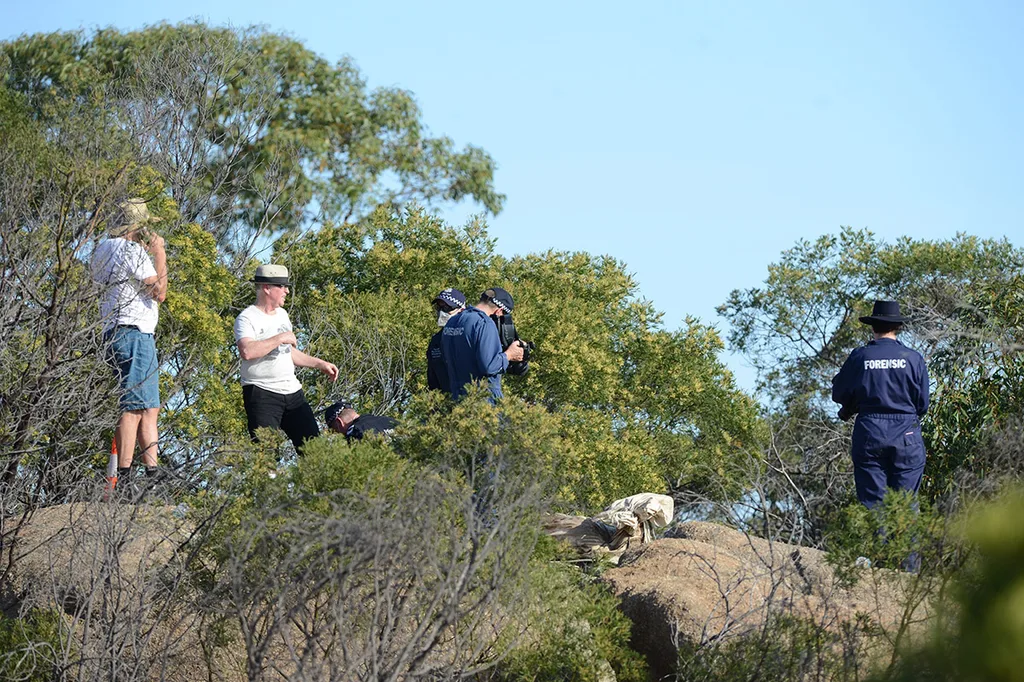
Torsten Trabert received a discount in sentencing for leading police to Wayne Amey’s body, wedged between boulders at Victoria’s Mt Korong.
Born in 1973 in the affluent Melbourne suburb of Glen Waverley, Robyn Jane Lindholm was an animal lover with honey-coloured hair who wanted for nothing.
Her father, Raymond, was a welder, her mother, Dorothy, a nurse.
“She received considerable affection from both parents,” her lawyer John Kelly told her plea hearing.
“Despite the fact that financial constraints were significant, she describes her parents on occasions going without in order to provide for her.”
Her early school years were spent at Kilvington Grammar School. Later she attended Malvern Girls High, in a desirable part of town.
At the age of 13 she won the Victorian Ice Skating Championships. An injury cut her sporting career short but she applied herself in school and was accepted to study science at prestigious Monash University. She hoped to transfer into veterinary science.
Lindholm studied hard for about 18 months but when she didn’t get the marks she needed to be a vet she shifted into a technical institute course in animal husbandry.
At 19, however, she dropped out and got a job at a car dealership, and later started working at Crown Casino.
The leggy blonde was popular in the high-roller Mahogany Room and attracted the attention of underworld figure Alphonse Gangitano, a key figure in Melbourne’s gangland wars, known as The Black Prince of Lygon Street.
“She became enamoured of the lifestyle in terms of its luxuries,” her lawyer John Kelly said.
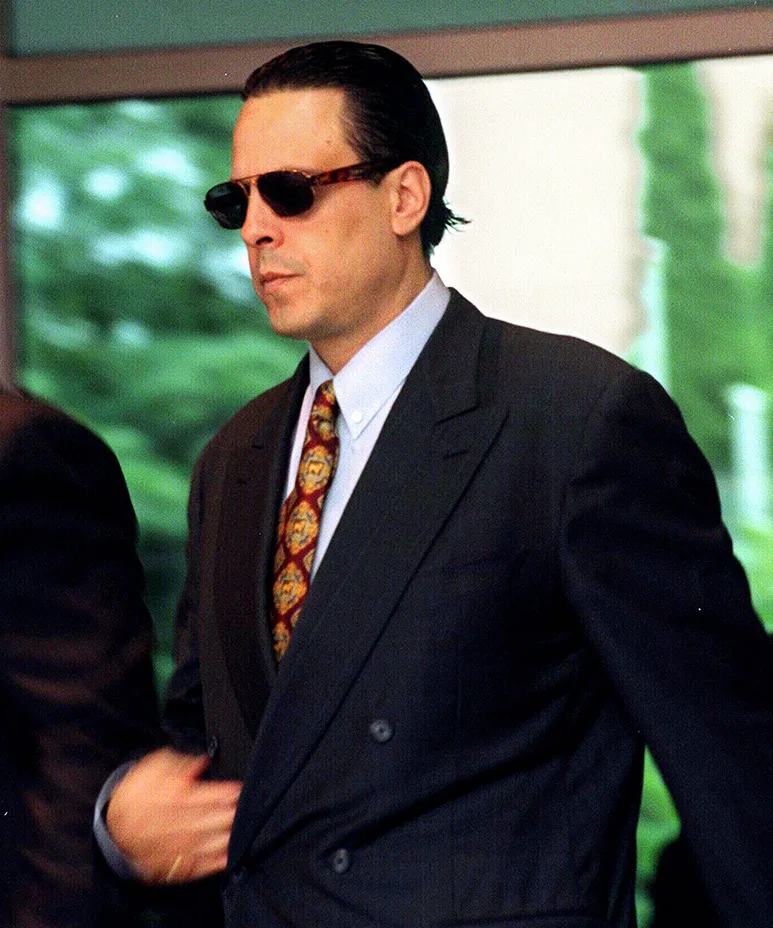
Robyn’s ex boyfriend Alphonse Gangitano – known as The Black Prince of Lygon Street – was a key figure in Melbourne’s gangland wars.
Seduced by a world of wealth, Lindholm began working as a stripper, which helped pay for the large mortgage she took out at the age of 20 to buy a 30-hectare rural property at Glenhope, north of Melbourne.
Her life changed in 1998, when Alphonse was executed in his home.
Lindholm moved on with George Teazis (also known as George Templeton), who had done a brief stint in prison in 2003 but, other than that, was a hardworking businessman who ran a carpet laying company with his brother, Nick.
“George and Nick worked together as an exceptionally close team – brothers working hard to create a better life,” George’s sister-in-law, Deborah Teazis, said in court.
They were a close-knit family and they accepted Lindholm into their lives. George loved seafood and steak, often “with a hearty Greek salad and a cold beer on a hot day”.
Deborah remembers Christmases spent watching George take control of opening the oysters, “but eating more before they actually made it to the table”.
On May 2, 2005, George performed his ritual of drinking Metaxa brandy to commemorate the anniversary of his father’s death.
This was something he did every year, and he asked Lindholm to buy the brandy for him. Lindholm and George had been together for seven years and she was familiar with the tradition.
At work that day, George was in a good mood, and clearly looking forward to his night of brandy and reflection, telling his brother Nick he was, “planning on putting a big chunk in it”.
That night, Lindholm made George dinner. Her friend Kate* was also at the house, and George’s son Ross was playing Xbox in the bungalow out the back, where he lived.
By the time he finished his meal, George was well and truly drunk, according to Ross. After they ate, Lindholm and Kate smoked some weed with George, and then the women went to Kate’s house.
“George was drunk, possibly stoned and certainly vulnerable,” Justice Beale said.
When Lindholm returned later that night, George had vanished. There was no sign of a break-in. His ute was missing too.
At 2.43am, she received a text from George that read: “Got problems, need a lift, will call soon.” He was never seen again.
Investigators found blood on the couch of George and Lindholm’s lounge, but George’s body was never recovered.
Soon after George disappeared, Lindholm severed ties with his family and started living with her new love interest, Wayne Amey.
She moved into his penthouse in the Melbourne suburb of Hawthorn and enjoyed the “high life”.
As far as anyone could tell, Lindholm was in love with Wayne. Her nickname for him was Batman and she planned to settle down with him and start a family.
She began working at his gym, and together they bought a farm at Bittern, a rural town south-east of Melbourne. But several years on, cracks began to show in their relationship, and in 2010 they split.
Things turned nasty when they tried to divide their assets. Wayne’s lawyer, Craig Henderson, said that Wayne was being threatened, and that Lindholm and Wayne’s relationship had ended because Lindholm had an affair.
Her new lover, a man named Kyle Elliot, admitted to threatening Wayne. He confessed Lindholm had asked him to kill Wayne quite a
few times, and they’d often argued about it.
“It became clear Mr Amey was anxious about his own safety,” said Justice Lasry.
In March 2012, Kyle was jailed for other crimes and by August that year, Lindholm had started dating a man named Aaron Michael Ardley.
He was obsessed with her, and when she asked him to kill for her, he readily agreed.
“After what me and Robyn talked about, I was under a spell,” Aaron said.
Aaron began following Wayne and conducting his own surveillance work. He lurked around Wayne’s favourite restaurant and began lifting weights.
When Crown Prosecutor Gavin Silbert asked him what he was in training for, Aaron replied: “To be a killer.”
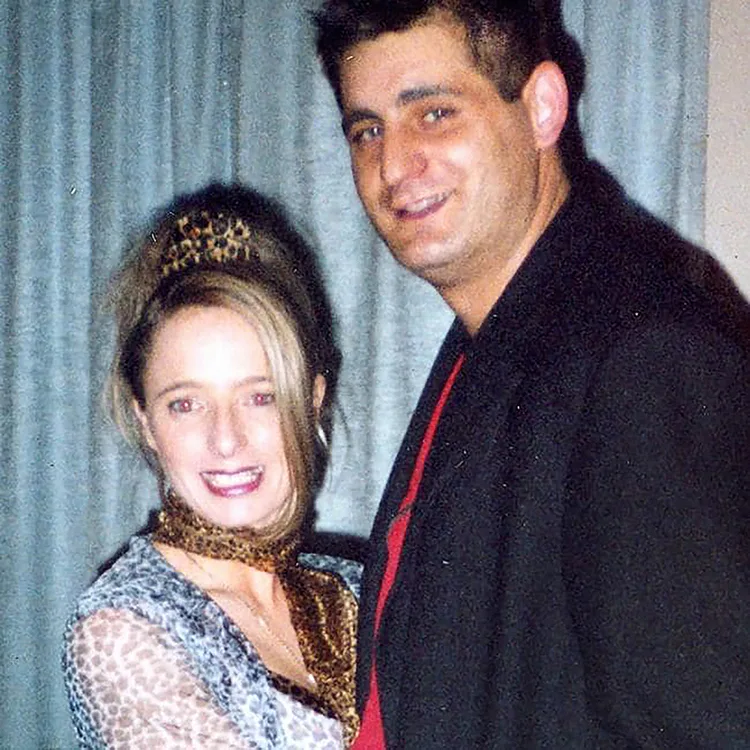
Lindholm with George Teazis. The pair were engaged to be married before Lindholm ordered his death.
Lindholm gave Aaron a security pass that would let him into the basement car park of the building she had once lived in with Wayne.
Aaron went there three times armed with knives. But in January 2013, Aaron suffered a brain injury, so couldn’t carry out the murder. Lindholm had to find someone else.
By this point, she was heavily using methamphetamine. She moved to a flat in Melbourne’s north, and it was then that she met Torsten Trabert.
He moved in with her and, although he was married, the pair began a torrid, sexually charged relationship.
Born in Germany, Trabert had moved to Australia with his parents in 1970.
He’d always had a low IQ but years of drug abuse had caused mild brain damage. The handwriting in the love letters he sent to Lindholm is that of a child.
In 2013 he was out of work, addicted to methamphetamine and madly in love. When Lindholm asked him to kill for her, Trabert agreed.
On December 10, 2013, Trabert and John Anthony Ryan drove to Wayne’s apartment building in Hawthorn. Using a swipe card Lindholm had given them, they entered the underground car park and waited for Wayne to return. When he did, they beat him and forced him into the boot of their car.
Trabert drove the car to the flat he shared with Lindholm. A neighbour heard mumbling from inside the boot. It was Wayne, begging for his life.
“You don’t have to go this far, I’ll do anything,” Wayne pleaded.
Trabert asked the neighbour to help “finish it” but he refused.
0Two days later, Trabert, Lindholm and Ryan drove to Mt Korong and hid Wayne’s body. Then they spent several hours drinking at a hotel.
When the police tracked them down, they denied having anything to do with Wayne’s death. But once the court process began, Lindholm turned on her accomplices, and her lover.
She pleaded guilty and implicated all three in Wayne’s murder.
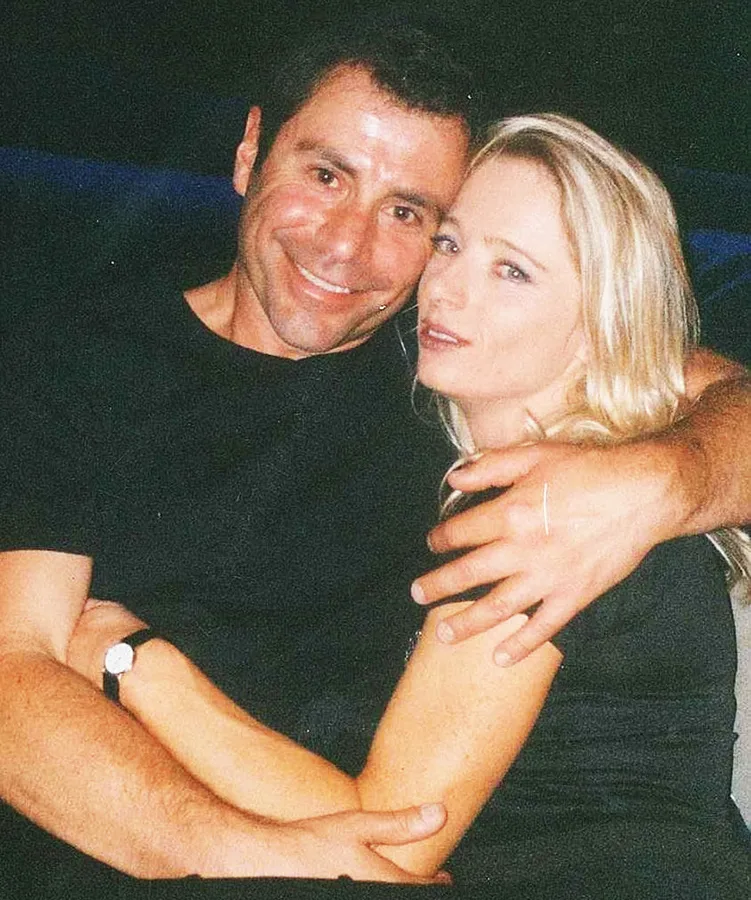
Robyn Lindholm and Wayne Amey
Trabert and Ryan refused to admit they killed Wayne, but a jury found them guilty.
A photo of Trabert, taken outside the bluestone court, captures him blowing a kiss at the photographer. He appears remorseless and smug as he prepares to be sentenced for murder.
After Justice Lasry handed down his judgement, the criminals were led away, and Wayne’s family and friends were left to process their grief.
That would have been the end of it. But Lindholm’s guilty plea had not gone unnoticed.
1Homicide detectives, who had been unable to crack the case of her former fiancé’s disappearance, started re-examining the evidence.
When police interviewed Lindholm’s friends and acquaintances, they discovered she had bragged to several people that she’d had a hand in George’s disappearance.
Lindholm was tried for murder. The modus operandi, the police claimed, was similar to the killing of Wayne Amey – Lindholm had been the one to order the hit, but she’d asked someone else to do her dirty work.
This time, however, Lindholm refused to admit guilt. She had an alibi, she insisted.
Her friend Kate was with her when George vanished. Kate was put on the witness stand and swore she was with Lindholm the whole time.
Under relentless questioning from the prosecutor, she stood her ground. But that night, she cracked.
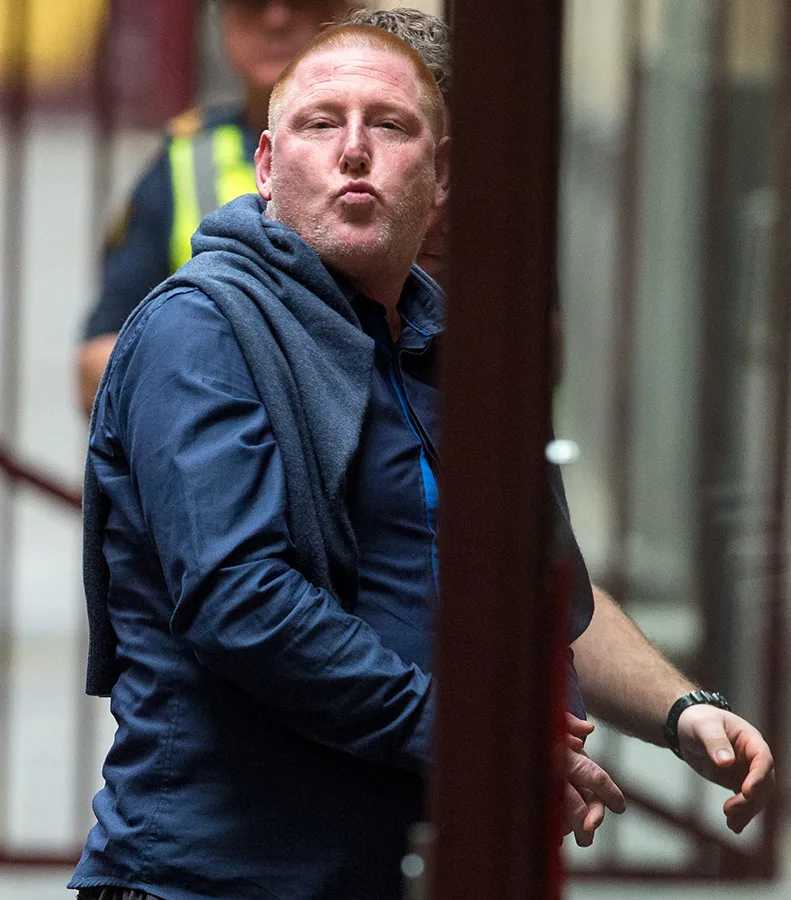
Torsten Trabert blows a kiss to photographers outside court.
She called the police and told them she wanted to change her statement.
2Kate revealed that Lindholm and Wayne Amey had begun their affair while Lindholm was still living with George.
She claimed Lindholm had confided to her that Wayne had “paid somebody to help him get rid of George”. She also told Kate to “stick to the story”, court documents show.
George’s blood was found in his lounge. Witnesses claimed Lindholm had talked about dumping his body in Port Phillip Bay, but this was never proved.
Despite pleas from George’s family, Lindholm has never revealed what happened to him. Even after 14 years was added to her jail term, she insisted she had nothing to do with his death.
George’s sister-in-law voiced the grief the family has endured and the anger they feel towards Lindholm:
“We accepted you into our family, as George’s partner,” Deborah told the unrepentant killer.
“We respected you as a human being.”
She begged Lindholm to “do something right” and tell the family where George’s body is.
3“If you ever loved or cared about George, even in the smallest way, then give him peace in death and give us some closure.”
Deborah and husband John took in George’s children, who suffered greatly after their father’s disappearance.
Deborah made a final plea to Lindholm:
“It is never too late to tell the truth. It is never too late to show you have compassion.”
The killer has, however, remained unmoved. She said nothing before being taken back to prison.
When she is freed she will be an old woman. Her earliest possible release date is 2049. If she is granted parole, she will leave prison when she is 71.
Until then, Robyn Lindholm maintains her silence.
